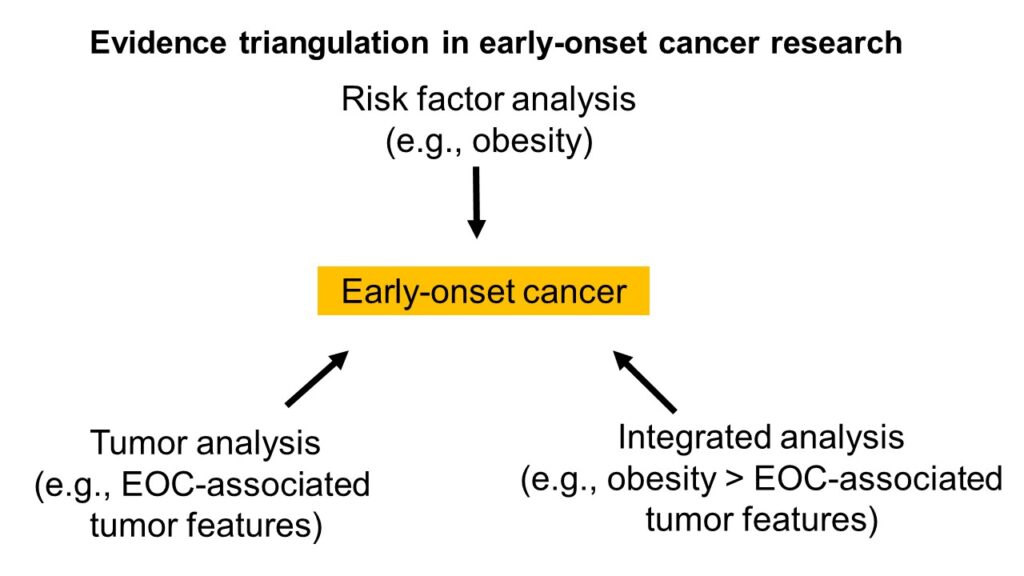Study Design
Evidence triangulation in early-onset cancer research Tomotaka Ugai* Tomotaka Ugai Shuij Ogino Satoko Amanda Phipps Ulrike Peters
The incidence of early-onset cancer, commonly defined as cancers diagnosed in adults below 50 years old, has increased in many countries. Evidence suggests that early-onset cancer is different from later-onset cancer and that early-life and long-term exposure can influence early-onset cancer risk decades later. However, key challenges in causal analyses of these exposures exist. For example, studies of early-onset cancers may be susceptible to recall bias, shorter follow-up, small sample size of young participants and early-onset cases, and confounding. To address these challenges, we took the following approaches. As an example, we illustrated our approaches using our early-onset colorectal cancer (CRC) research utilizing the resources of the Nurses’ Health Study (NHS), Health Professionals Follow-up Study, and Genetics and Epidemiology of Colorectal Cancer Consortium. First, we compared clinicopathological characteristics of early-onset cases with those of later-onset cases in a cross-sectional case-only analysis. We identified long interspersed nucleotide element-1 (LINE-1) DNA hypomethylation, immunosuppressed features, and pks+ Escherichia coli colibactin mutational signatures as early-onset CRC-associated features. Second, we conducted a pooled analysis of case-control studies to examine the association between long-term exposures and the risk of early-onset CRC, showing that obesity [OR, 1.3 (1.2-1.3)], alcohol [OR, 1.2, (1.0-1.6)], fast insulin [OR, 2.4, (1.3-4.2)], and type 2 diabetes [OR, 1.3 (1.0-1.7)] were associated with early-onset CRC risk. Third, we conducted an integrative analysis of long-term exposures and early-onset CRC-associated tumor features in a prospective cohort design. We have shown that long-term alcohol intake is associated with increased incidence of CRC with tumor LINE-1 hypomethylation [HR: 1.7 (1.0-2.7)] and that insulin-resistant promoting dietary scores are associated with increased incidence of CRC with pks+ Escherichia coli [HR: 4.1 (1.7-9.8)]. Ideally, we hope to validate these associations in early-onset CRC after we collect more tissue from early-onset CRC. These combined approaches will strengthen causal inferences by integrating results from different approaches, leading to evidence triangulation in early-onset cancer research.

